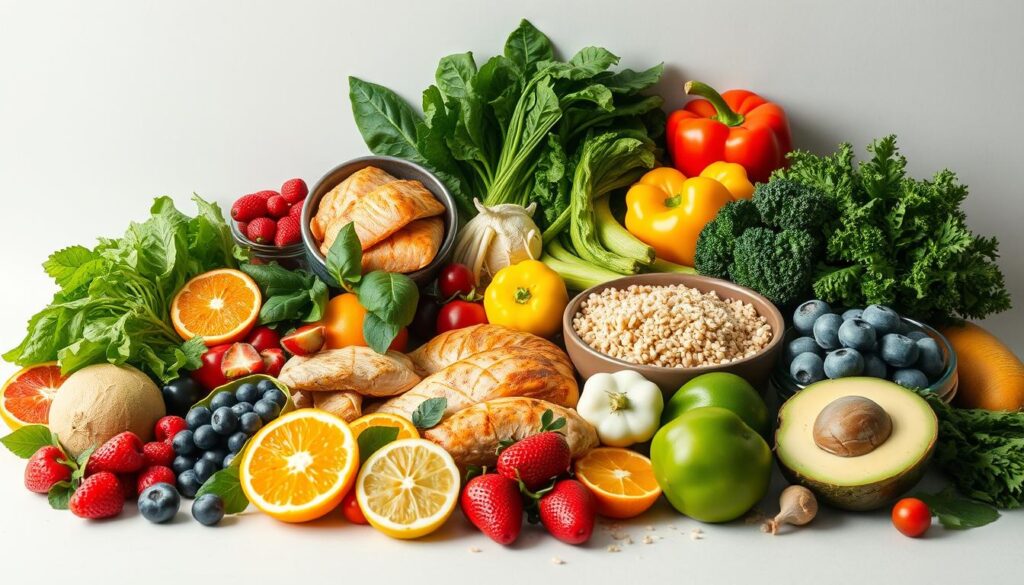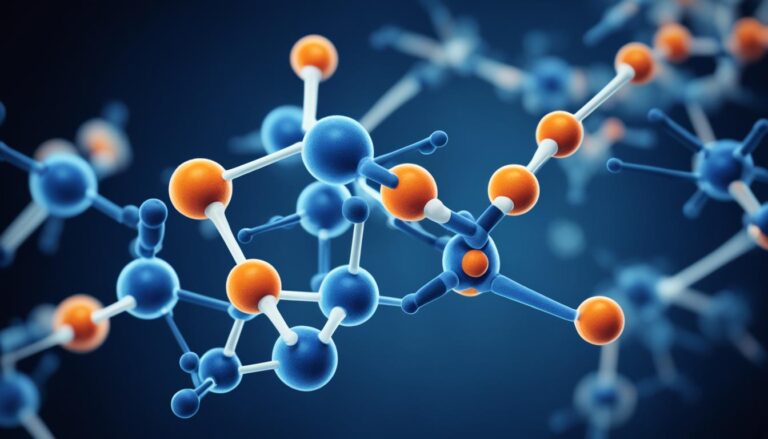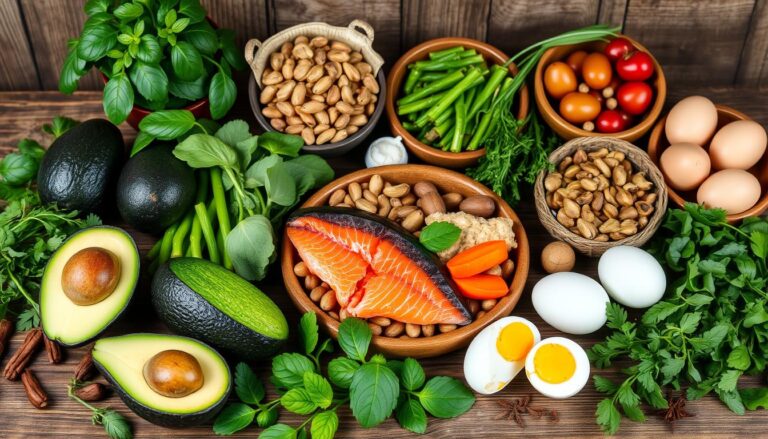Losing weight is a common goal for many individuals, but achieving it effectively and maintaining a healthy weight can be challenging.
With the numerous weight loss tips available it’s crucial to identify strategies that promote not just weight reduction but also overall well-being.
A healthy weight loss plan should be sustainable balanced, and tailored to an individual’s needs.
Key Takeaways
- Effective weight loss is about more than just dieting.
- A healthy weight loss plan is sustainable and balanced.
- Understanding your body’s needs is crucial.
- A well-planned weight loss strategy promotes overall well-being.
- Maintaining weight loss is just as important as achieving it.
Understanding the Science Behind Weight Loss
The journey to weight loss is deeply rooted in scientific principles that govern how our bodies function. At its core, weight loss involves a complex interplay of factors including diet exercise, and metabolic rate.
Caloric Deficit The Foundation of Weight Loss
A caloric deficit occurs when the body burns more calories than it consumes leading to weight loss. This can be achieved through a combination of reducing caloric intake and increasing physical activity.
Metabolism and Its Role in Weight Management
Metabolism plays a crucial role in weight management, as it determines how efficiently the body burns calories. A faster metabolism means the body burns calories more quickly aiding in weight loss.
The Truth About Fat Storage and Burning
Fat storage and burning are influenced by various factors, including genetics, diet, and exercise. Understanding how these factors interact can help in devising effective weight loss strategies.
| Factor | Influence on Weight Loss |
|---|---|
| Caloric Deficit | Essential for weight loss |
| Metabolism | Affects the rate of weight loss |
| Fat Storage | Influenced by genetics and diet |
Setting Realistic Weight Loss Goals
Embarking on a weight loss journey requires more than just motivation it demands a clear plan and achievable goals. Setting realistic objectives is crucial for a successful and sustainable weight loss journey.
Determining Your Healthy Weight Range
Understanding your healthy weight range is the first step towards setting realistic weight loss goals. This range is influenced by factors such as age, gender height, and body composition. Consulting with a healthcare professional can provide insights into what a healthy weight range is for you.
You may like to read: 10 Superfoods for Wellness
Creating SMART Weight Loss Objectives
Creating SMART Specific, Measurable, Achievable, Relevant, Time-bound weight loss objectives is essential. For example, aiming to lose 1-2 pounds per week is a more realistic and sustainable goal than trying to lose a large amount of weight quickly.
The key is not to lose weight fast, but to lose weight smart and sustain it.
Tracking Progress Beyond the Scale
Tracking progress is not just about weighing yourself. It’s also about monitoring changes in body composition, energy levels, and overall health. Using a food diary or mobile apps can help track your weight loss journey and identify patterns or areas for improvement.

Nutrition Fundamentals: How to Lose Weight Through Diet
Understanding the fundamentals of nutrition is key to developing a successful weight loss strategy through dietary adjustments. A well-balanced diet not only supports overall health but also plays a critical role in managing weight.
Macronutrients and Their Impact on Weight Loss
Macronutrients, including carbohydrates, proteins, and fats, are essential for energy and bodily functions. Adjusting the intake of these macronutrients can significantly impact weight loss. For instance, a diet high in protein can enhance satiety and boost metabolism.
A study published in the Journal of the American Medical Association found that individuals on a high-protein diet experienced greater weight loss compared to those on a low-protein diet.
| Macronutrient | Role in Weight Loss | Food Sources |
|---|---|---|
| Protein | Enhances satiety and metabolism | Lean meats, fish, eggs, dairy |
| Carbohydrates | Provides energy, impacts blood sugar | Whole grains, fruits, vegetables |
| Fats | Essential for hormone production, satiety | Nuts, seeds, avocados, olive oil |
Portion Control Strategies
Implementing effective portion control is crucial for maintaining a healthy diet plan. Using smaller plates, measuring food portions, and being mindful of serving sizes can help manage calorie intake.
The key to successful weight loss is not about cutting out specific foods, but about being mindful of the quantities you consume.
Meal Timing and Frequency
Meal timing and frequency can also influence weight loss. Eating regular, balanced meals can help regulate hunger and metabolism, while skipping meals can lead to overeating.
By understanding and applying these nutrition fundamentals, individuals can develop a personalized diet plan that supports their weight loss goals and promotes overall well-being.
The Best Foods for Weight Loss
To lose weight effectively, it’s essential to focus on nutrient-dense foods that promote satiety, support digestive health, and provide essential vitamins and minerals.
High-Protein Foods That Promote Satiety
High-protein foods are crucial for weight loss as they help build and repair muscles, keeping you fuller for longer. Examples include:
- Lean meats like chicken, turkey, and lean beef
- Fish such as salmon, tuna, and tilapia
- Eggs and legumes like lentils and chickpeas
- Dairy products including Greek yogurt and cottage cheese
These foods not only support muscle growth but also have a high thermic effect, meaning your body burns more calories digesting them.

Fiber-Rich Foods for Digestive Health
Fiber-rich foods are vital for maintaining a healthy digestive system, which is crucial for weight loss. They include:
- Whole grains like brown rice, quinoa, and whole-wheat bread
- Fruits such as apples, berries, and oranges
- Vegetables like broccoli, carrots, and leafy greens
- Legumes, which are also high in protein
These foods help regulate bowel movements and prevent constipation, supporting a healthy metabolism.
Nutrient-Dense Foods with Low Calorie Counts
Nutrient-dense foods that are low in calories are ideal for weight loss. They provide essential nutrients without adding to your calorie intake. Examples include:
- Leafy greens like spinach and kale
- Cruciferous vegetables such as cauliflower and Brussels sprouts
- Low-calorie fruits like citrus fruits and apples
- Herbs and spices that add flavor without calories
These foods are not only low in calories but also rich in vitamins, minerals, and antioxidants, making them perfect for a weight loss diet.
You may like to read: Healthy Snacks to Boost Productivity
Foods to Limit or Avoid
Effective weight loss isn’t just about adding healthy foods, but also about avoiding those that can derail your goals. Certain foods can hinder your weight loss efforts by providing excessive calories, added sugars, and unhealthy fats.
Processed Foods and Hidden Calories
Processed foods are often high in calories, added sugars, and unhealthy fats. These foods can be particularly detrimental to weight loss efforts because they are typically high in empty calories, providing little to no nutritional value while consuming a significant portion of your daily caloric intake.
Sugar and Its Effect on Weight Gain
Consuming high amounts of sugar can lead to weight gain due to the excessive calorie intake and the impact on your body’s insulin resistance. Sugary drinks and desserts are among the top contributors to added sugar in diets, making them a critical area to limit or avoid for those seeking to lose weight.
Understanding Empty Calories
Empty calories come from foods that provide energy but lack essential nutrients like vitamins, minerals, and fiber. Common sources include sugary snacks, processed meats, and fried foods. Limiting these foods is crucial for effective weight management and overall health.
Effective Exercise Strategies for Weight Loss
To achieve significant weight loss, incorporating effective exercise routines is essential. Exercise not only burns calories but also builds muscle, enhancing metabolism and overall health.
Cardio Workouts for Maximum Calorie Burn
Cardio workouts are a cornerstone of weight loss. Activities like running, cycling, and swimming are excellent for burning calories. For maximum effect, incorporating High-Intensity Interval Training (HIIT) can boost calorie burn and improve cardiovascular health.
Strength Training to Build Metabolism-Boosting Muscle
Strength training is crucial for building muscle mass, which in turn boosts resting metabolic rate. This means the body burns more calories at rest. Focus on exercises that work multiple muscle groups at once, such as squats, deadlifts, and bench presses, to maximize efficiency and effectiveness.
Finding the Right Exercise Frequency and Intensity
The frequency and intensity of workouts should be tailored to individual fitness levels and goals. For weight loss, aiming for at least 150 minutes of moderate intensity exercise or 75 minutes of vigorous-intensity exercise per week is recommended. It’s also important to include rest days to allow for recovery and muscle repair.
Combining cardio and strength training exercises and adjusting the frequency and intensity based on individual progress can lead to successful weight loss. Consistency and patience are key, as exercise is just one part of a comprehensive weight loss strategy.
Natural Weight Loss Methods
Natural weight loss methods offer a holistic approach to achieving and maintaining a healthy weight. These methods focus on long-term lifestyle changes rather than quick fixes or fad diets.
The Benefits of Whole Foods Approach
A whole foods approach emphasizes consuming unprocessed, nutrient-dense foods. This method not only aids in weight loss but also improves overall health.
Benefits of Whole Foods:
- Rich in essential nutrients
- Low in added sugars and unhealthy fats
- High in fiber, promoting satiety and digestive health
As noted by a health expert, Focusing on whole foods can significantly improve dietary quality and support weight loss efforts.
The key to successful weight loss is not about cutting out specific food groups, but about making sustainable dietary changes that prioritize whole, nutrient-dense foods.
Herbal Supplements: Facts vs. Fiction
Herbal supplements are often touted as miracle solutions for weight loss. However, it’s crucial to separate fact from fiction.
| Herbal Supplement | Claimed Benefits | Scientific Evidence |
|---|---|---|
| Green Tea Extract | Boosts metabolism and fat burning | Some studies support its efficacy |
| Garcinia Cambogia | Suppresses appetite and inhibits fat production | Limited evidence supporting its effectiveness |
Lifestyle Changes That Support Natural Weight Loss
In addition to dietary changes, certain lifestyle adjustments can significantly support natural weight loss efforts.
Key Lifestyle Changes:
- Increasing physical activity levels
- Improving sleep quality
- Managing stress effectively
By incorporating these changes, individuals can create a supportive environment for their weight loss journey.
Overcoming Common Weight Loss Plateaus
Reaching a weight loss plateau doesn’t mean you’ve failed it means it’s time to adjust your strategy. Weight loss plateaus occur when the body adapts to the current diet and exercise routine, leading to a halt in weight loss progress.
Understanding Why Plateaus Happen
A plateau can happen due to various factors, including a decrease in metabolism, changes in body composition, or a reduction in the effectiveness of the current diet and exercise plan. Understanding the cause is crucial to overcoming the plateau.
Strategies to Break Through Stalled Progress
To overcome a plateau, consider changing your workout routine, such as incorporating strength training or increasing the intensity of your cardio workouts. Additionally, reassessing your diet to ensure you’re maintaining a caloric deficit can be beneficial. Variety in your routine can help stimulate further weight loss.

When to Reassess Your Overall Approach
If you’ve been stuck on a plateau for an extended period, it may be time to reassess your overall weight loss approach. This could involve seeking professional guidance or re evaluating your goals and strategies to ensure they are realistic and aligned with your needs.
You may like to read: Magnesium deficiency back pain and scleroderma
The Psychological Aspects of Weight Loss
Understanding the psychological aspects of weight loss can significantly enhance one’s ability to achieve and maintain weight loss. It’s a complex process that involves more than just physical changes it requires a deep understanding of the mental and emotional factors at play.
Addressing Emotional Eating
Emotional eating is a significant barrier to successful weight loss. It’s essential to recognize the triggers that lead to emotional eating, such as stress, boredom, or emotional states. Strategies to overcome emotional eating include mindfulness, keeping a food diary, and finding alternative coping mechanisms.
For instance, practicing mindfulness can help individuals become more aware of their hunger and fullness cues, reducing the likelihood of overeating. Similarly, maintaining a food diary can help identify patterns and triggers of emotional eating.
Building a Positive Mindset
A positive mindset is crucial for successful weight loss. It involves setting realistic goals, celebrating small victories, and maintaining a positive self-image. Techniques such as positive affirmations, visualization, and setting achievable milestones can help foster a positive mindset.
For example, using positive affirmations daily can help rewire the brain to focus on positive outcomes, enhancing motivation and resilience. Visualization techniques can also help individuals imagine themselves achieving their weight loss goals, further reinforcing a positive mindset.
The Importance of Self-Compassion
Self-compassion is vital during the weight loss journey. It involves treating oneself with kindness, understanding, and patience, especially during setbacks. Practicing self-compassion can help mitigate the negative impact of setbacks and maintain motivation.
To illustrate the importance of these psychological aspects, consider the following table that summarizes key strategies:
| Strategy | Description | Benefit |
|---|---|---|
| Mindfulness | Practice being present and aware of hunger and fullness cues | Reduces overeating |
| Positive Affirmations | Use daily affirmations to focus on positive outcomes | Enhances motivation and resilience |
| Self-Compassion | Treat oneself with kindness and understanding during setbacks | Maintains motivation and reduces negative impact of setbacks |
By addressing the psychological aspects of weight loss, individuals can better navigate their weight loss journey, overcoming common obstacles and achieving their goals more effectively.
Creating a Sustainable Weight Loss Journey
Sustainable weight loss is not just about reaching a goal weight, but about adopting a lifestyle that promotes long-term health and wellness. To achieve this, it’s crucial to strike a balance between diet and exercise that can be maintained over time.
Balancing Diet and Exercise Long-Term
A well-balanced diet provides the necessary nutrients for optimal body function, while regular exercise helps burn calories and build metabolism-boosting muscle. Combining these elements effectively is key to sustainable weight loss. For instance, incorporating high-intensity interval training (HIIT) can enhance calorie burn, while a diet rich in protein can support muscle growth.
Building Habits That Last
Building lasting habits is essential for long-term weight loss success. This involves making gradual changes to your lifestyle that you can sustain over time. Starting with small, achievable goals can help make these changes feel less daunting. For example, beginning with a 10-minute daily walk and gradually increasing the duration can make exercise a sustainable habit.
Maintaining Motivation Through Challenges
Maintaining motivation is crucial when facing challenges during your weight loss journey. Setting realistic milestones and celebrating your achievements can help keep you motivated. Surrounding yourself with a supportive community can also provide the encouragement needed to overcome obstacles.
By focusing on sustainable weight loss strategies, individuals can achieve their weight loss goals and maintain a healthy weight over time. This approach not only improves physical health but also enhances overall well-being.
What is the most sustainable way to lose weight?
A plant-based, whole-food, and balanced diet is the most effective in the long-term weight loss. Eat more vegetables, fruits, legumes, whole grains, nuts, and seeds; reduce ultra-processed food, added sugar, and refined carbs.
Conclusion
Losing weight is a journey that requires patience, dedication, and a clear understanding of how to achieve your goals. By understanding the science behind weight loss, setting realistic objectives, and adopting a balanced diet and exercise routine, you can embark on a path to a healthier, more confident you.
To succeed in your weight loss journey, focus on developing sustainable habits, such as portion control, regular physical activity, and a diet rich in nutrients. Incorporating weight loss tips like meal planning and tracking your progress can also help you stay on track.
A healthy weight loss approach is not just about reaching a number on the scale, but about adopting a lifestyle that promotes overall well-being. By combining effective how to lose weight strategies with a positive mindset, you can achieve a healthy weight loss that lasts.
You may like to read: Is Nitric Oxide Essential for Health?





